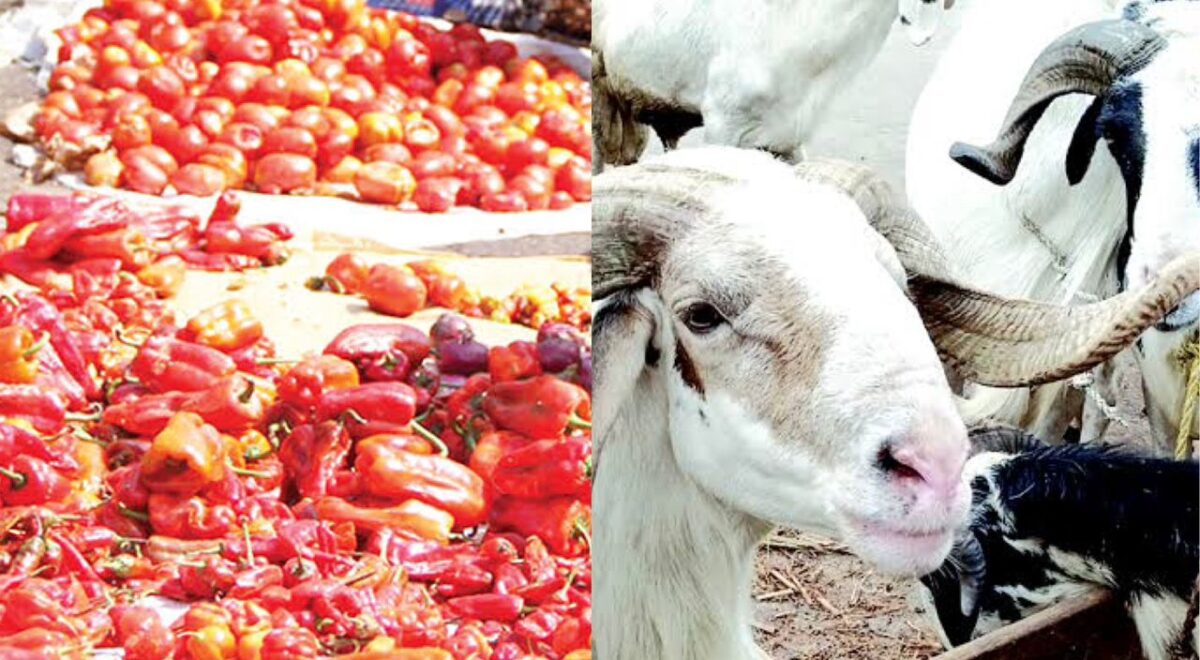Nigerians are bracing up for the most expensive Sallah holidays in over 30 years as prices of essential food items such as rice, tomatoes and ram hit record highs.
Nigeria is currently experiencing its highest inflation rate in over 30 years with food inflation notching a near 40-year high. The country has not had things this bad in decades.
For most Nigerians, the Muslim Eid-el-Kabir (Sallah) festive period is a time of vibrant celebrations, hearty food sharing, and generous gift-giving within their neighbourhoods.
The homes of the Muslim faithful and local mosques come alive with the traditional slaughtering of the Ileya ram, a cherished part of the festivities.
This year, however, Sallah might be remembered as one of the most expensive ever, thanks to a severe economic downturn and soaring inflation, which have driven up the prices of rams, tomatoes, rice and other food items across the country.
A recent survey in Lagos and Abuja revealed a staggering 200 per cent increase in livestock prices over the past year, fueled by food inflation, subsidy removal, and other economic pressures.
READ ALSO: Nigeria’s inflation soars again in May, rises by 0.26%
In Lagos’ bustling Agege abattoir, vendors and butchers paint a grim picture. Rams that once sold for N100,000 to N150,000 now command prices between N300,000 and N400,000, marking a sharp 150% surge.
Dare, a seasoned seller, gestures towards a medium-sized ram. “Last year, this would have gone for N100,000. Now, I can’t sell it for less than N300,000. It just doesn’t pay,” he tells Nairametrics. “Everything has gone up.”
A bag of rice now sells between N79,000 and N90,000, depending on the type of rice one is purchasing.
The same was observed when it comes to a paint bucket of garri which was sold for around N600 last year but is now selling between N3,800 and N4,200, with an increase of over 400%.
Ridwan, a seller in Lagos, shared his concerns with Nairametrics. “By now, customers ought to have been flooding this place. You should have seen them in numbers. But I guess the economy is touching everyone,” he lamented. “We hardly sell four or six rams per day here now. Believe me, it’s like the season is not yet upon us.”
When asked about the reasons behind the spike in livestock prices, Mr. Ayodeji, another livestock dealer, pointed to the soaring cost of feed. “First, it’s the feeds. In 2023, a bag of feed for cows and rams was just N7,000. Ask anybody—they’ll tell you. But now, we buy it for about N20,000 to N22,000,” he explained.
The combination of higher costs and decreased consumer spending is creating a challenging environment for both buyers and sellers as the festive season approaches.
According to the Nigeria Bureau of Statistics (NBS), food inflation in Nigeria is above 40%, making it extra difficult for many to purchase food items.
In a recent survey of markets in Lagos, the price of a basket of tomatoes was priced as high as N150,000 in the month of May while it sold for N40,000 in the month of April.
“Inflation is malignant to any economy,” Olufemi Idris, a Lagos-based economist said. “Until something is done about the high cost of food production, the malignancy will eat deep into the pocket of anyone, whether you’re celebrating Sallah or not.”

 Business1 week ago
Business1 week ago
 Football1 week ago
Football1 week ago
 Entertainment1 week ago
Entertainment1 week ago
 Entertainment6 days ago
Entertainment6 days ago
 Latest1 week ago
Latest1 week ago
 Latest1 week ago
Latest1 week ago
 Entertainment3 days ago
Entertainment3 days ago
 Business1 week ago
Business1 week ago

